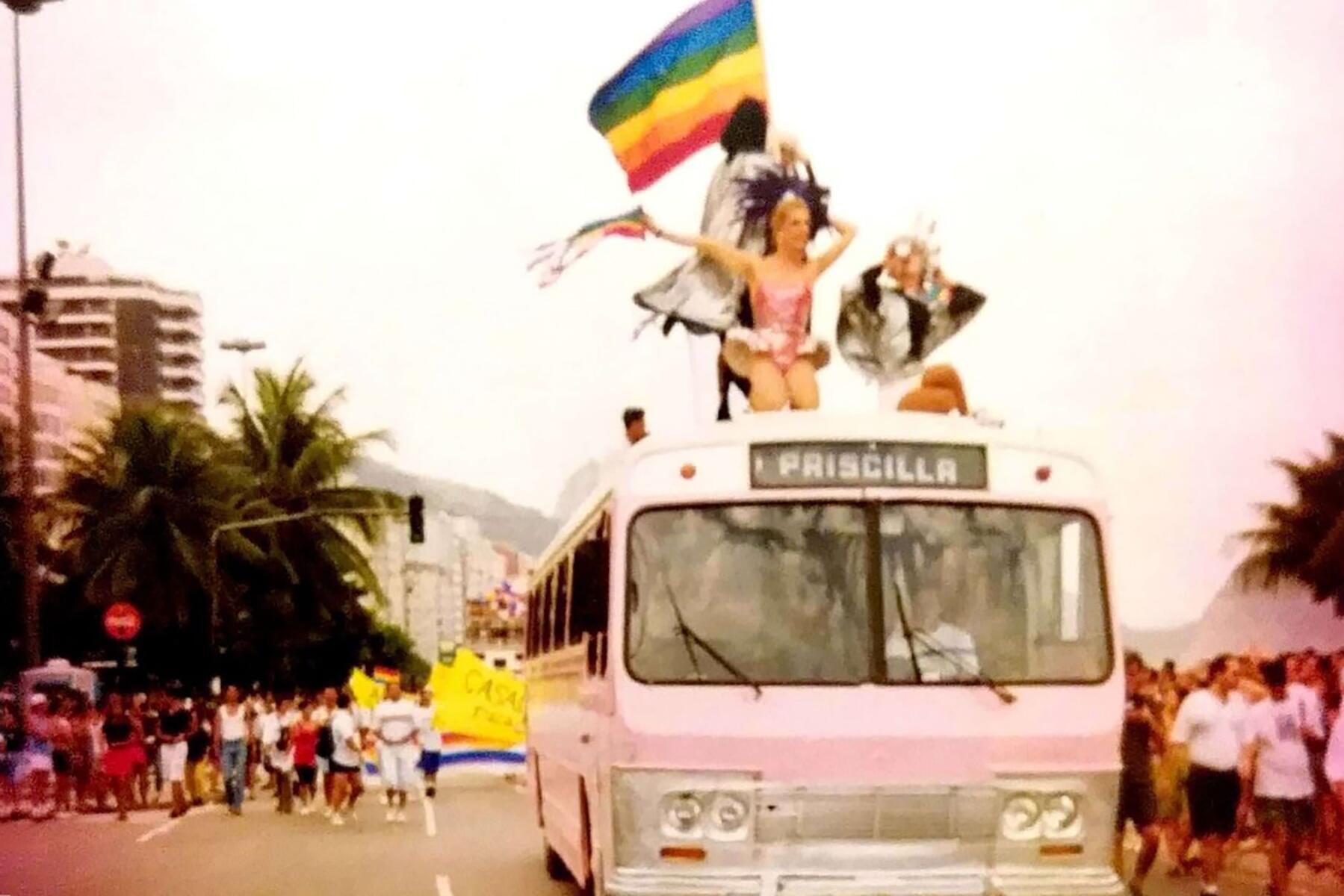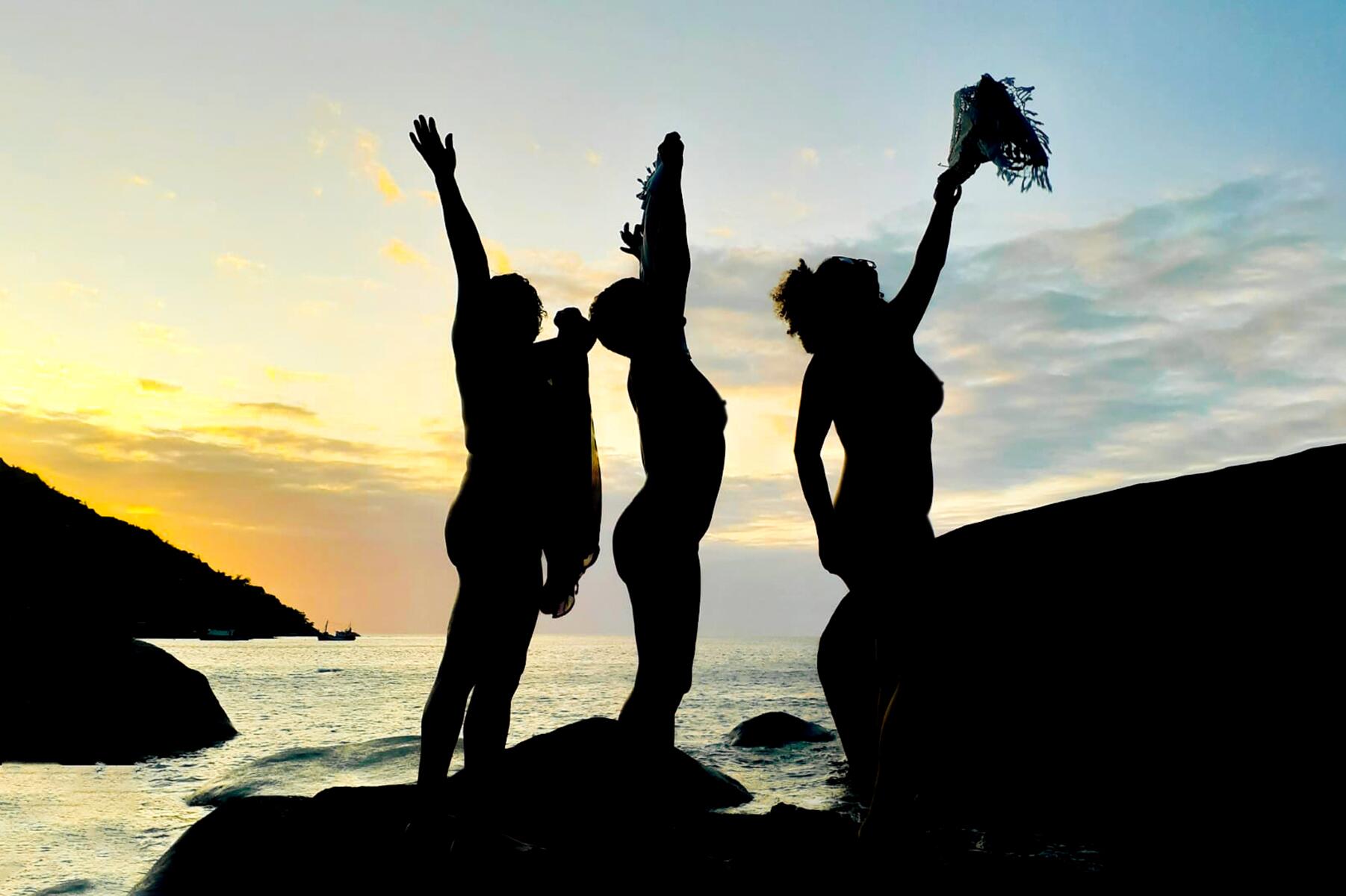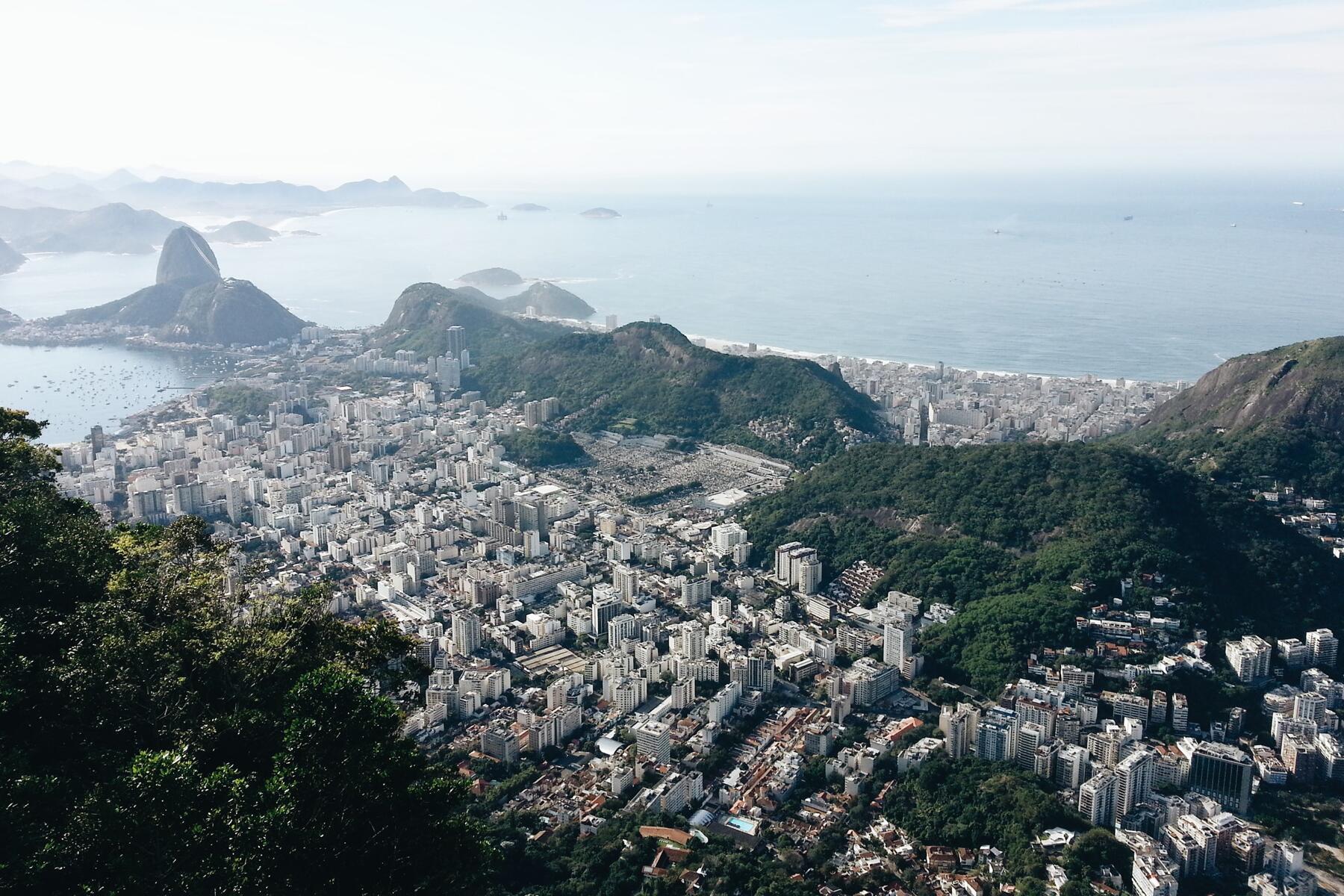What it’s like to battle COVID-19 in a country that’s prematurely moved on from the pandemic.
After catching COVID-19, Brazilian President Jair Bolsonaro’s infamous words: “Face up to it, you will probably all get coronavirus,” could not be more true. It was only a matter of time until I would catch the deadly virus that continues to ravage Latin America’s largest country. After all, Rio de Janeiro is one of Brazil’s hardest-hit cities by the pandemic—if this huge coastal city were a country, it would have the world’s second-highest death toll.
Renting an apartment on Ipanema’s beachfront was perhaps the biggest indicator that “coronaphobia” (the fear of contracting COVID-19) hadn’t quite caught on here—with the public fearing quarantine more than the virus itself. After months of the Copacabana and Ipanema beaches being deserted, the situation dramatically changed after the authorities rolled out a series of reopening measures on July 3, notably: the return of beach group sports and bars. As a result of conflicting guidelines, Rio’s rule-benders began to interpret the measures as they saw fit. Although sunbathing was prohibited, it was perfectly acceptable to stand on the sand, so long as there was no sitting on it. This brought clusters of revelers onto the South Zone’s beaches drinking and socializing on foot.
Recommended Fodor’s Video
But with such a vast population,16.46 million in Rio de Janeiro state alone, how do the police control an entire beach? After locals continued to flout the guidelines for three consecutive weekends, the authorities announced that the beaches would remain off-limits until a vaccine is found. This did little other than provoke beach-insistent residents to hit the sands even harder. The maritime police have since largely given up on regulating the beaches.
Mask wearing is compulsory in public places but whether this is adhered to largely depends on where you are in the city. My friend Jonnie, a resident of Rio’s North Zone, tells me that locals in his neighborhood “only wear masks to enter the supermarket.” He adds, “No one has talked about coronavirus since July.”
The virus has not only created a broader divide between the social classes, but it’s also created a divide between those afraid of catching coronavirus and those who are not. “Those who feel safe frequent the beaches and bars, those who are scared, stay at home,” my friend Rodrigo tells me.
Despite the outward nonchalance of the city, seeming to be relatively unscathed by the events of 2020, I caught the virus. My COVID-19 ordeal started when my housemate Isabela complained about a pounding headache, fatigue, and (the sure-fire sign) a loss of taste and smell. While Isabela was experiencing suspiciously COVID-19-like symptoms, I was grappling with some health issues of my own. It was the second week of dealing with a swollen left leg that was causing intense muscle cramps. It was time to face the dreaded reality of attempting to navigate Brazil’s healthcare system as a foreigner.
I woke up in such excruciating pain that I couldn’t move my leg, let alone walk.
Since the beginning of the pandemic, my initial travel and health insurance policies had been deemed invalid, escalating the fear of what would happen if I would be taken seriously ill by the virus. I decided to visit a (very unhelpful) general practitioner who advised I stop taking my contraceptive pill and to see whether the swelling would disperse naturally in a few weeks.
It was too late for that. The next day, (a Saturday), I woke up in such excruciating pain that I couldn’t move my leg, let alone walk. As I screamed in agony, Isabela and her boyfriend, Paulo came to my beaconing call. Fully suspecting she had coronavirus, Isabela attempted to keep her distance as the emergency unfolded in our living room. Despite sharing a bedroom with Isabela, Paulo had yet to experience any symptoms but could have been asymptomatic—both were waiting for their COVID-19 test results.
I did not have a clue which hospital to go to and I no longer had health insurance.
Had Paulo, a Rio de Janeiro native, not been there, I would have found myself in a disastrous situation. I did not have a clue which hospital to go to and I no longer had health insurance–heading to the private hospitals would likely rack up a hefty bill. Even so, after Paulo made a few phone calls to his doctor friends, we were advised to visit a private hospital nearby. The doctors took some blood tests but couldn’t determine whether the problem was an infection or worse, Deep Vein Thrombosis (DVT). I would have to wait until Monday to find out.
Arriving home, the COVID-19 test results were in and Isabela had officially tested positive. I made an appointment to see a specialist on Monday and was diagnosed with Deep Vein Thrombosis. I then began to experience coronavirus symptoms, slightly before Paulo. It started with a high fever, followed by spells of profuse sweating—not particularly pleasant in the 86-degree heat. Then came the extreme fatigue where after sleeping for hours, it felt like I had only slept for 20 minutes. The sore throat kicked in the next day before the uncontrollable coughing spasm took over. Surprisingly, I never lost my sense of smell or taste, even though I’d completely lost my appetite.
From vitamin D, vitamin C, and iron supplements to antibiotics, Ivermectin, Prednisone, and Montelair, you name it—I was taking it.
My bedside table was covered with every medication under the sun. I had started taking blood-thinner medication for DVT, as well as a list of medications that Isabela’s doctor had recommended to alleviate COVID-19 symptoms. From vitamin D, vitamin C, and iron supplements to antibiotics, Ivermectin, Prednisone, and Montelair, you name it—I was taking it.
Given that I am young (in my late 20s) and healthy (aside from DVT), my symptoms were relatively mild and short-lived. I recovered after three days. Isabela and Paulo (both in their early 30s), however, haven’t had such an easy ride. One month on, Isabela and Paulo are still dealing with the side effects. The first thing to go for Paulo was his sense of smell and taste before the fatigue and fever hit him. Isabela is still complaining about her headaches—neither of their sense of smell and taste has returned completely.
Undergoing a fortnight of quarantine was no easy feat when the public seemed to have forgotten that the virus was circulating. My social media feed was flooded with images of my backyard’s white sands obscured by bronzed bodies, sun loungers, and parasols during the bank holiday—while I was confined to my room.
My advice for anyone living in or intending to travel to a foreign country is to be prepared.
Having contracted coronavirus, I realize more than ever that the pandemic is not something to be taken lightly. I am now more conscious of the damaging and sometimes devastating effects it can have, not just on at-risk groups, but even the healthy. Since recovering, I have resumed my futevolei classes on the beach but try to avoid any overcrowded places. Rio de Janeiro has seen a drop in cases since its peak in March, leading locals to believe that some level of collective immunity has been reached. But we don’t know how long immunity will last and I for one don’t intend on whipping off my mask anytime soon.
Of course, people need to return to their daily lives, to continue working and making ends meet, but forgetting the pandemic exists is not a winning strategy. My advice for anyone living in or intending to travel to a foreign country is to be prepared. Research or ask around for which hospital would be best to go to and make sure you inform your friends and family in advance. I have now found health and travel insurance called Safetywing that covers nomad travelers abroad during the pandemic. I hope that my frightening personal experience is behind me, but while the Brazilians’ joie de vivre approach to life is something I admire greatly, the crisis in Rio is far from over and we cannot simply escape this reality.
You are complaining about the Brazilian government not being responsible managing the pandemic. I say you are irresponsible for travelling without insurance and not being prepared. Bolsonaro would have to be a magician to contain the virus in a country like Brazil, where as your article said, the population is divided brtwen those who are scared and those who no matter what could care less about the virus or following orders.




Brasil has two kinds of hospitals. There are the "poor peoples'" hospitals for those without insurance. Basically, that's where people go to die. I was warned not to go inside under any circumstances. Then, there are the "rich peoples'" hospitals. Alianze seems to be the top hospital for the rich. I was given a tour of their hospital in Salvador, Bahia, and I was extremely impressed. Food is excellent, accomodations are luxurious, doctors and nurses are competent, but insurance is pretty much essential. The insurance companies seem to own the hospitals. If you need an ambulance, you call the hospital, not 9-1-1 like here. That said, my friend who lived in Salvador, died on Oct. 6 of COVID-19. The hospitals for the poor are not air conditioned, and the windows are left open to let the insects have free access to the patients. If I had two broken legs, and I was at the entrance, I'd crawl the two miles or so to the Alianze hospital.